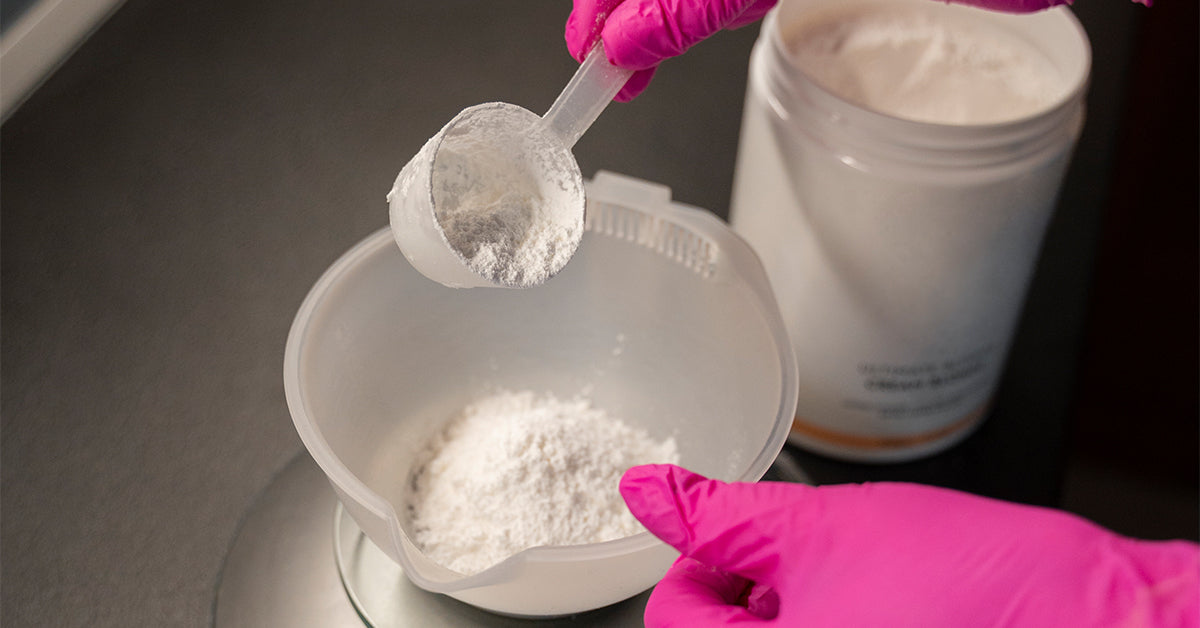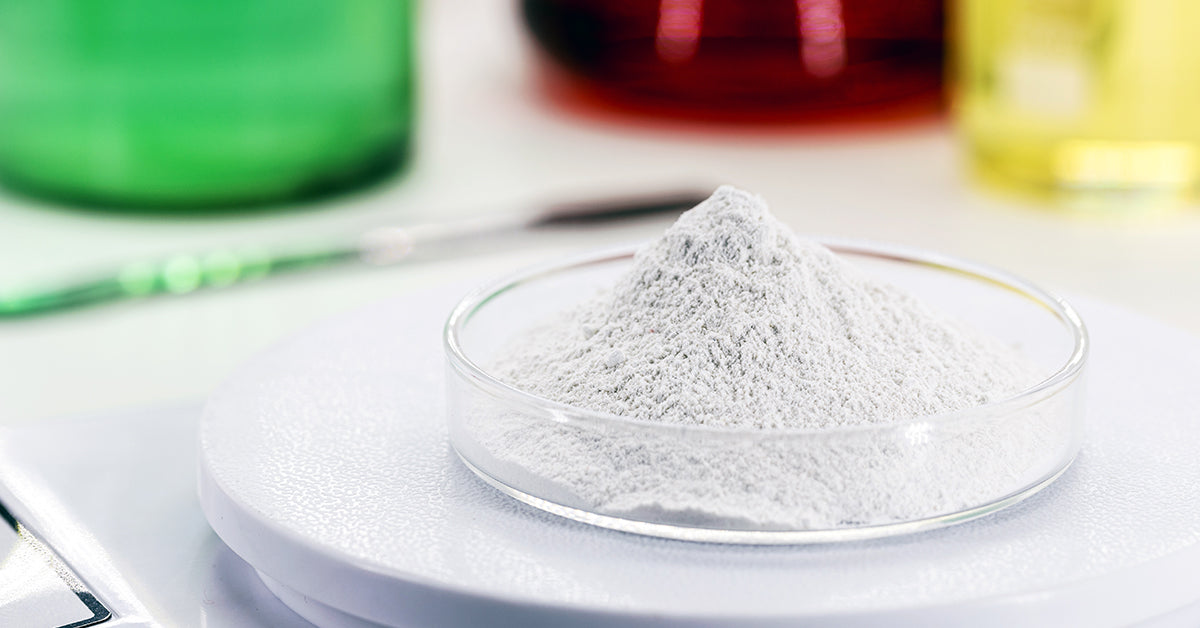Did you know that the Indian whey protein market is expected to grow at a CAGR of 5.56% (i.e from USD 91.78 million in 2023 to USD 120.29 million by 2028?
Whey protein is one of the most significant supplements for anyone trying gym and sports. Different formulas of whey protein are used for various purposes. Generally, whey proteins help with muscle building, muscle maintenance, and gaining more energy for athletes and ordinary people. Many of us must be made aware of the different types of whey protein, thus reducing its effectiveness for additional requirements.

Let's look at a factual article about whey protein and the science of its use in our human body, shall we?
What is Whey Protein?
Many of us know what whey protein is and how it's used. Or we at least know the scenarios where whey proteins are necessary and used more. But do we know where it comes from or how it's made? Or do we at least see the whey protein science behind it? Well, let's find out!
Whey is a byproduct of cheese. Whey protein is obtained during the water removal process when cheese is made from milk. When the solid substances are taken to make cheese, the liquid separated holds the whey protein, which is then concentrated.
Milk products are known for their proteins. There are two types of proteins present in milk. The most abundant one is casein, which is almost 80% in milk. This is one of the reasons why casein is way cheaper and more easily available compared to whey. On the other hand, whey protein is present at 20% in the milk. This increases the demand for it and, hence, the cost as well.
What are the types of Whey Protein?
As we know, there are different types of whey protein for different purposes. Of course, regular protein supplements are available and are consumables for undirected consumers. But for someone looking for whey protein with a requirement, three major types of whey protein are available.
- WPI - Whey protein isolate
- WPC - Whey Protein Concentrate
- WPH - Whey Protein Hydrolysate
Whey protein Isolate:
Whey protein isolate, or WPI, are protein supplements with very little lactose and an easily ignorable fat percentage. This supplement has about 95% protein, a great concentration that doesn't allow any other substance to be present.
Whey Protein Concentrate:
Whey Protein Concentrate might contain 35%-80% of protein weight in it. This percentage isn't constant and might keep changing with different WPC supplements. It contains less fat and lactose than milk. But other supplements besides WPC have the most concentrated protein among all the three kinds.
Whey Protein Hydrolysate:
Whey Protein Hydrolysate, or WPH, is nothing but the hydrolysed supplements of WPC and WPI. It can be made from both of the above supplements and because of this, the effectiveness and efficiency of WPH keep changing. With an unstable quality, whey protein hydrolysate is the most processed whey protein compared to the other two.
How Does Whey Protein Work?
Whey protein has many effects on your body once you start consuming it. The proteins work differently based on consumption, BMI, and many other factors.
-
Muscle Gain: Optimisation of food intake in the body along with glutamic acid paves the way for muscle gain in the body. It helps with tissue building and adds mass to the muscles. This makes it one of the go-to options for sportspeople and gyms.
-
Reduce Hunger: Whey protein is considered as highly satiating than other proteins. As a result it keeps the person full for a longer time. Or in other words the feeling of fullness due to whey protein suppresses cravings and hence reduces hunger.
-
Immune System Boosting: The amino acids in the whey protein supplement help boost a body's immune system effectively. It increases the body's healing factor to help it endure the physical changes that will happen once you start consuming whey protein.
-
Cholesterol level reduction: Taking a proper and regular dose of whey protein helps reduce bad cholesterol in the body. In a research study, patients with increased insulin levels were discovered to reduce insulin levels over 12 weeks. Whey proteins are great at breaking down bad cholesterol, thus leading to a healthier life.
-
Weight loss: Whey proteins not only build and maintain a body's muscles but also reduce unwanted fat by increasing metabolism. They burn the unwanted and bad fat from the muscles, making more space for the good and healthy muscles to build themselves.
-
Reduce Inflammation: We all know that our body responds to damage in terms of inflammation. However, under some circumstances this inflammation becomes chronic which is harmful for our health. Thus, an adequate amount of whey protein also helps in reducing the inflammation along with boosting the immune system.
Other than these mentioned benefits, whey protein also helps in lowering blood sugar level, reduces stress and depression symptoms and lowers blood pressure. In all, Whey protein offers various benefits to live a healthy lifestyle .
But what are the sources of the whey protein? Let’s find out in the next section!
Whey Protein - The Natural Protein
Among the many types of proteins we consume, whey protein can be differentiated as one obtained from milk products. As mentioned, it is a byproduct of the cheese manufacturing process. Now, what constitutes whey protein?

Whey protein is an important supplement for a healthy and strong body. It has nine amino acids that help build and maintain muscles and energy. The amino acids are significant and efficient, which is an important reason for the necessity of whey protein.
The amino acids present in the whey protein are Valine, Tryptophan, Threonine, Phenylalanine, Methionine, Lysine, Leucine, Isoleucine, and Histidine. These are called Essential Amino Acids (EAA), as they are needed by your body to function properly.
While whey protein can be found naturally in milk and some dairy products, it can be difficult to get enough protein from these sources alone, especially if you are active or trying to build muscle. This is where Big Muscles whey protein supplements come in.
BigMuscles Whey Protein is a premium whey protein supplement that is made with high-quality ingredients. It is available in a variety of flavors, so you can find one that you enjoy.
Conclusion
In the end, one very healthful option to increase the amount of protein in your diet is to consume whey protein. It's a high-quality protein source that the body effectively absorbs and uses.
But if you are a gym lover or an athlete, then resistance training and whey protein supplements can enhance muscle protein synthesis and encourage the development of lean tissue mass. This is where you can rely solely on Big Muscles. Visit the website and choose from a wide range of best whey protein varieties and unlock the way to a healthy lifestyle.
Remember to always consult your doctor before using any supplement.
FAQs
Q1: What does whey protein do to our bodies?
Ans. Whey protein is a significant supplement for muscle building and boosting while working out, especially for sports or the gym. Whey proteins are taken from natural products like milk, eggs, and food products.
Q2: What are the results of whey protein consumption?
Ans. Proper and appropriate intake yields good results for the human body, but increased intake results in side effects such as headaches, acne, dehydration, thirst, tiredness, bloating, and nausea. But in most cases, consuming whey protein through natural food products doesn't usually have bad side effects.
Q3: What happens if someone drinks whey every day?
Ans. For someone who works out so much and does heavy work, drinking water every day could be a great help. Appropriate and regular consumption of whey works well for bodybuilding and energy boosts.
Q4: How does whey consumption affect the kidneys?
Ans. Kidneys need to function a lot when someone is consuming whey regularly. During excretion, whey could increase the volume of urine and urinary calcium, which overburdens the kidneys and thus makes them weak in a few days. They can also cause stones in the kidneys, which is a whole other problem to deal with.






